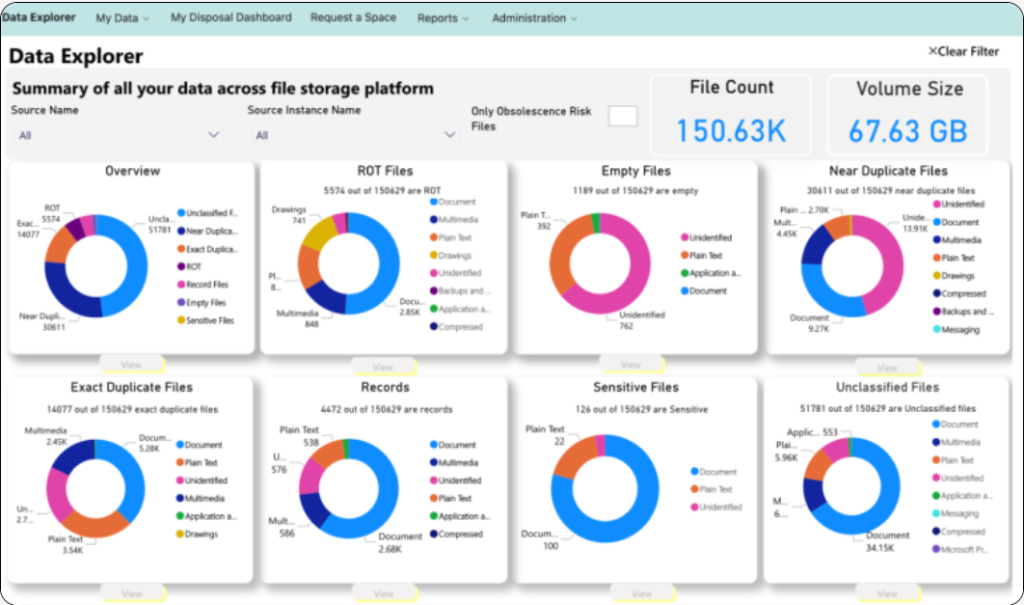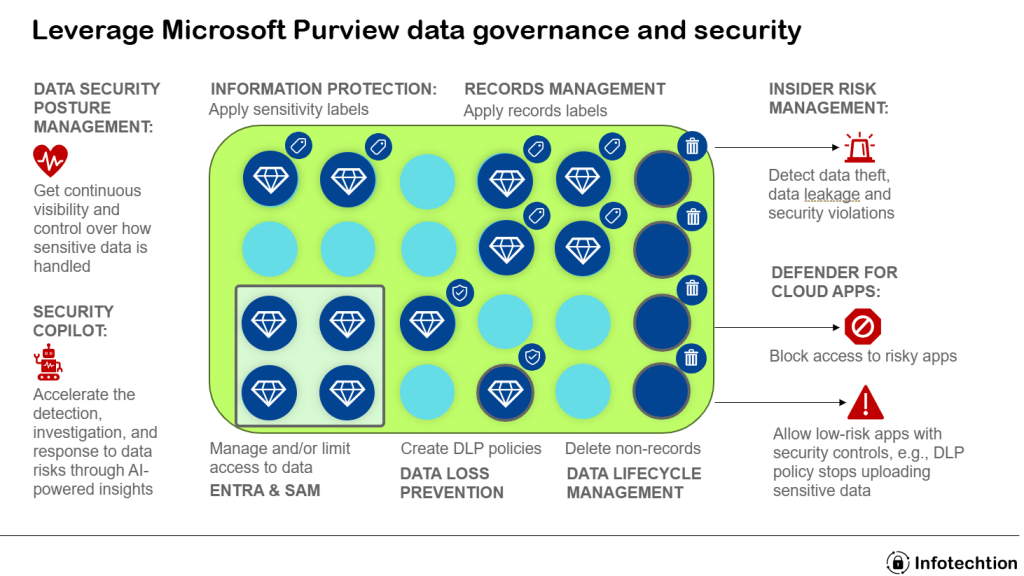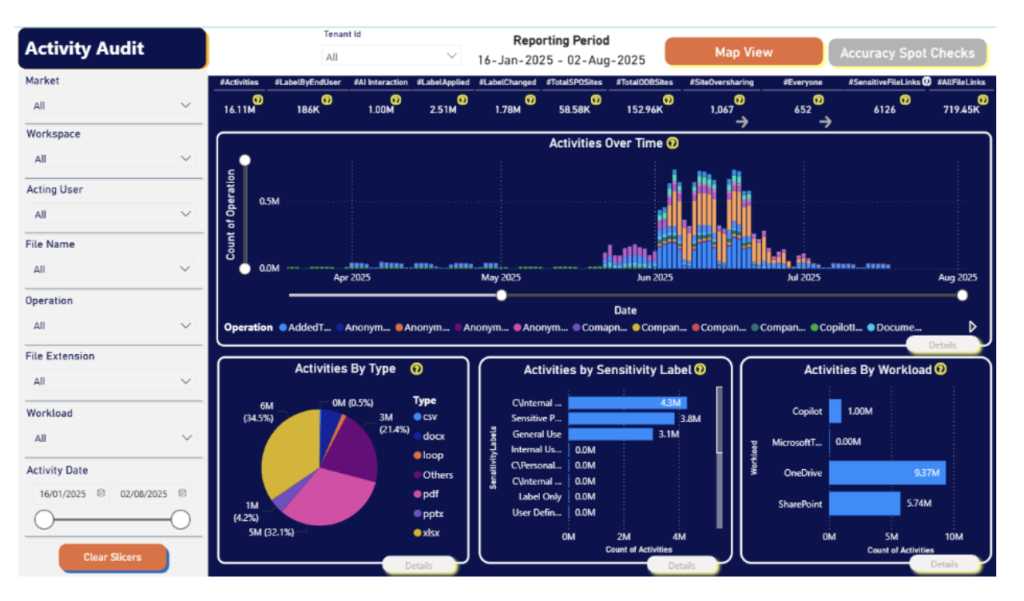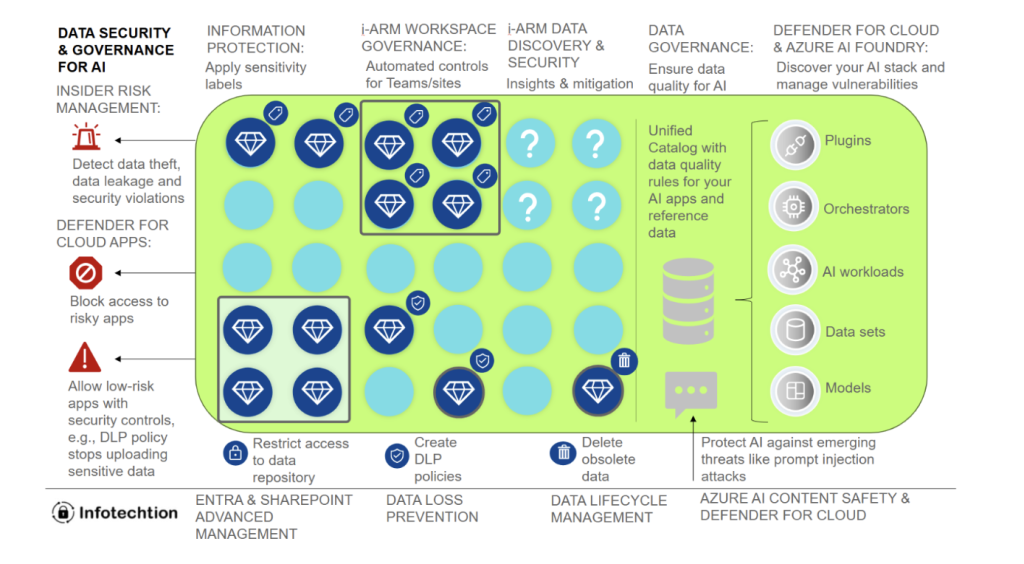The Must-Read Data Security & Governance Series for 2026

![]()
As we head into 2026, AI, Copilot, and rapid data growth are forcing organizations to rethink how data security and governance are designed, operated, and sustained. Microsoft Purview provides a critical foundation—but success in 2026 depends on how you implement, operate, and extend it to support AI-driven ways of working. To help you stay ahead, […]
Is Your SharePoint Environment Ready for April 2026?

![]()
April 2026 may feel far away—but for many organizations running SharePoint Online, it’s closer than it looks. Microsoft has announced the retirement of several legacy SharePoint Online records and information management features. When these features are switched off, organizations still relying on them could face compliance gaps, governance disruption, and rushed remediation projects. The key […]
Start with Microsoft Purview. Finish Everywhere with the Infotechtion-ARM.

![]()
Microsoft 365 is now fully embraced by most organizations as the primary platform for collaboration and productivity. Microsoft Purview plays a critical role in securing this environment by protecting information stored in Microsoft 365 and shared from it—using classification, sensitivity labels, encryption, and data loss prevention to control access, external sharing, and usage. For data created, stored, […]
Stop Treating Microsoft Purview Like a Project

![]()
Treating Purview like a one-off implementation—plan, deploy, hand over—produces one-off results. Data grows, risks shift, new controls and regulations appear, and the organization changes. The only way to keep value and risk reduction moving in the right direction is to run Purview as a service, governed by a clear Target Operating Model (TOM). This post […]
Cut SharePoint Storage Costs

![]()
Are you struggling to control the rising costs of your SharePoint storage? 60% of M365 customers surveyed by Infotechtion are paying premium rates ($0.20 /GB /month) for hot-tier storage — even for data that’s stale, redundant, or no longer relevant. But deletion isn’t always an option due to compliance, ownership, ambiguity, or business hesitation. That’s […]
How to avoid data breaches

![]()
Data breaches rarely happen the same way twice. Some are driven by malicious insiders, others by external hackers, careless employees, or even well-intentioned staff experimenting with new AI tools. What they all have in common: the cost to the business can be devastating. Below are four real-world style scenarios that show how breaches often occur […]
Turning Audit Pain into Audit Readiness: How to Simplify Compliance

![]()
IT security audits are meant to validate that an organization’s information assets are secure and compliant. Regulators, boards, and customers expect assurance that risks are managed against standards and regulations such as ISO/IEC 27001, NIST SP 800-171/53, PCI DSS, HIPAA, and GDPR. For CISOs, audits should showcase security maturity. Instead, they often become a repetitive, […]
Securing Data in the Age of AI: Outcomes of Implementing Microsoft Purview and the Infotechtion-ARM Solution to embrace and extend Purview

![]()
Data is the lifeblood of modern organizations—and one of the biggest targets for cybercriminals, insiders, and supply chain vulnerabilities. Sensitive information exists everywhere: in emails, collaboration platforms, cloud storage, legacy file shares, and increasingly in AI assistants like Microsoft Copilot. The challenge is not only knowing where sensitive data is, but also ensuring it is […]
How Microsoft Purview Insider Risk Management Helps You Stay Ahead of Internal Threats

![]()
In today’s hybrid work environment, where sensitive data flows across devices, apps, and geographies, insider risks have become one of the most complex and costly threats to manage. According to Microsoft research, insider incidents account for 20% of data breaches and cost organizations an average of $7.5 million per incident. Worse, they take an average […]
Security and Governance for AI: Building a Resilient Future

![]()
Protecting and Governing AI with Microsoft Solutions Artificial Intelligence (AI) is revolutionizing industries across the globe, yet its rise brings critical challenges in security and governance that organizations must address proactively. Understanding the risks, implementing robust safeguards, and embracing a Zero Trust strategy are pivotal steps in leveraging AI effectively while mitigating vulnerabilities. Generative AI: […]

